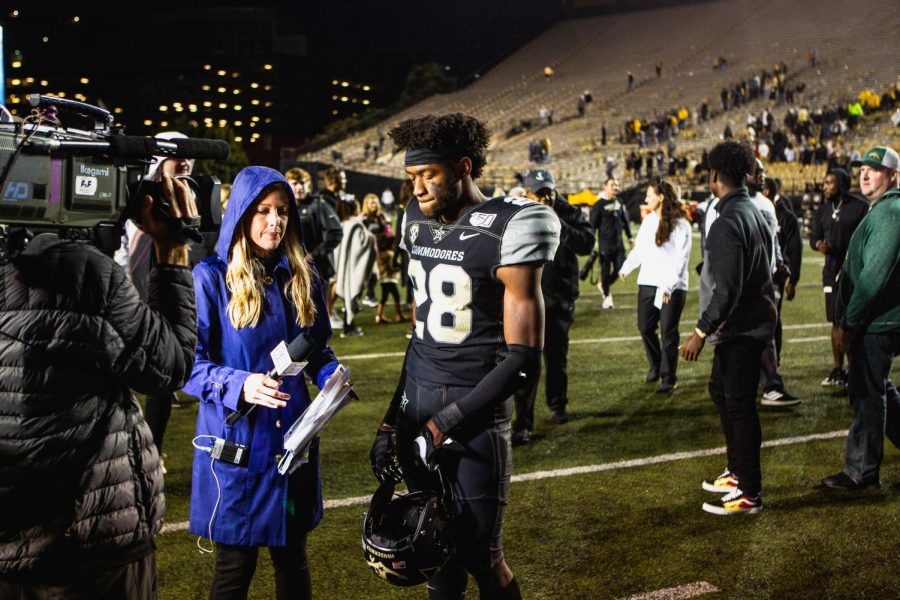Vanderbilt doesn’t always sell itself as a “sports school,” but our fifteen SEC teams help define us as an institution and bolster our image. We’re a Division I school in a powerhouse athletic conference. In the past two years, we’ve earned national titles in baseball and women’s bowling. Such successful sports programs have helped the Athletic Department rake in millions of dollars. Unfortunately, the athletes who work hard to make this happen don’t get a dime.
Last month, California took a step to remedy this issue: California Governor Gavin Newsom (D) signed into law the Fair Pay to Play Act, which prevents the NCAA from barring programs that do not comply with its “name, image or likeness” rule from competition. More states, including our home state Tennessee, should consider passing similar laws.
The National Collegiate Athletics Association, which regulates thousands of athletic programs (including our own), is in charge of regulating athletes’ access to their “name, image or likeness.” This means that athletes cannot make money from endorsement contracts, autograph-signings or sponsorships. The NCAA defends this rule, claiming that paying athletes would ruin the “amateurism” of college sports. The organization remains steadfast in its practice of preventing players from earning any income for their work. This not only prevents schools from paying athletes but also bars athletes from earning income through their personal brand. NCAA President Mark Emmert is not swayed by arguments decrying this practice. He has painted efforts to change this status quo as a war on amateurism, as an attempt to turn student athletes into employees.
But, as time goes on, Emmert and the NCAA will have fewer and fewer people on their side. Two-thirds of Americans believed that college athletes should be paid when their name or image are used to produce a profit, according to a 2017 poll conducted by The Washington Post and UMass Lowell which surveyed 1000 people. And while California’s bill is a big step in the right direction, many problems remain.
Obviously, this is a state law applying only to California, so schools in the other 49 states are still under the NCAA’s yoke. According to Tommy Openshaw, a former placekicker for Vanderbilt’s football team, this discrepancy has the potential to create recruitment imbalances for schools in other states, “allowing big states [California] to recruit all the big talent because they can pay them completely defeats the purpose of the NCAA.” Why would a top high school player come to a Southern school when they could go to California and start making money?
In order to maintain parity in athletic program attractiveness across the country, other schools have to adapt to compete. Unfortunately, it does not appear that Vanderbilt will depart from its and other schools’ policies and advocate in favor of allowing athletes to earn income. When asked for input on the issue, the University merely replied that it was “aware of the [California] legislation” and “monitoring the response from the NCAA and others.”
if Vanderbilt and other universities don’t act, student-athletes will continue to lose out on the revenue that they have generated.
“The fact that the NCAA bars what we do with who we are and our image and what we do is kind of ridiculous,” Openshaw added. “I definitely think there should be some sort of regulation… just a blanket free-for-all, students can make as much money as they want on the side based on their image might not be the best route forward, but I think student-athletes definitely deserve to make money off their success and what they bring to the school.”
If Vanderbilt doesn’t take the lead in shifting Tennessee’s conversations on this issue, California could be hung out to dry. The NCAA has openly condemned this bill, threatening to bar California schools from competition. Without a platform to compete, the California schools won’t attract student-athletes, diminishing the potential profits those student-athletes could make. California schools need the NCAA more than the NCAA needs them. However, if other states follow California’s lead, the NCAA will likely be forced to comply. College athletics won’t be able to function effectively without the participation of a multitude of states and the NCAA would lose leverage. That’s why it’s so imperative that other states back California and pass similar bills.
Additionally, if Vanderbilt and other universities don’t act, student-athletes will continue to lose out on the revenue that they have generated. As such, the Tennessee legislature must take up the initiative to force the University’s hand. It has many options and need to look no further than the Fair Pay to Play Act for direction. There is even some institutional support for change: Republican state senator Brian Kelsey introduced a resolution in March which would instruct public universities to leverage their conference memberships to oppose the NCAA’s pay ban.
Politicians across the political spectrum think an income restriction is unfair – from Tea Party conservative House Representative Matt Gaetz (R-FL) to liberal Democratic presidential candidate and New Jersey senator Cory Booker. The American people want this to happen. Politicians who can’t seem to agree on anything else want this to happen. Tennessee should make it happen. To sum up the NCAA’s opposition to such a reasonable, broadly supported initiative, former Commodore Offensive Lineman Bruno Reagan put it best: “It just seems un-American.”

